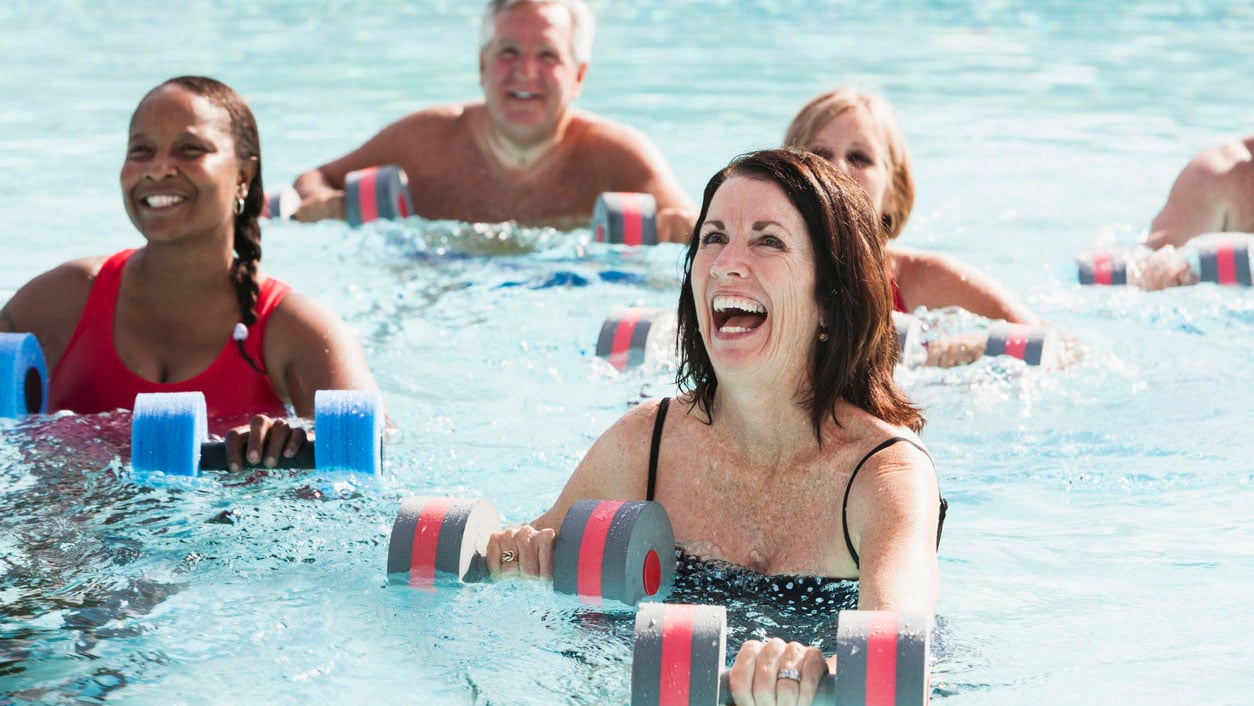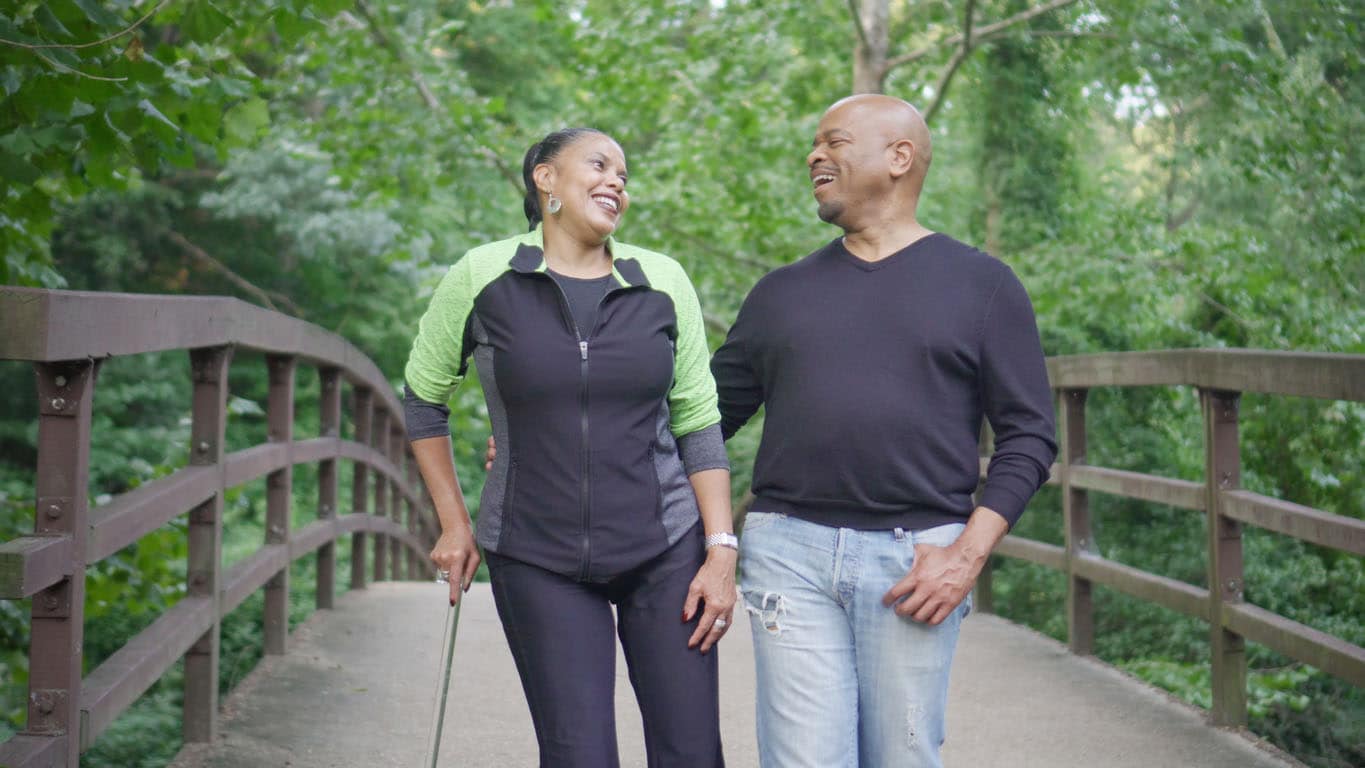Key points
- Physical activity can help people with arthritis reduce joint pain and improve function and mood.
- Managing your symptoms with physical activity can result in better health and quality of life.

Be active to manage arthritis
Everyone should move more and sit less throughout the day to stay healthy.
Recommended mix of physical activity
Adults, including those with arthritis, need a mix of activities to stay healthy. It is recommended that adults should do:
- At least 150 minutes a week of moderate-intensity aerobic activity or anything that gets your heart beating faster.
- At least 2 days a week of muscle-strengthening activity or activities that make your muscles work harder than usual.
A bit at a time
You can break up your physical activity into short sessions. Just 5 or 10 minutes at a time is beneficial. As long as you get the recommended amount each week, you are getting the full benefits of physical activity.

Joint-friendly physical activities
The best activities to choose:
- Are fun.
- Are easy to get to.
- Cause no or little pain.
- Are the ones you will stick with over time.
Joint-friendly physical activities that put no or low stress on the joints include:
- Brisk walking.
- Cycling.
- Light gardening.
- Dancing.
- Tai chi.
- Swimming.
- Water exercises—like shoulder shrugs and ankle circles in the water.
For strength training, choose weights or resistance bands that do not cause joint pain.
As your body gets used to an activity, you can increase the difficulty in small amounts over time.
Starting physical activity
When starting or increasing physical activity, start slowly and pay attention to how your body feels.
After starting a new physical activity program, it's normal to have some pain, stiffness or swelling.
Over time, arthritis joint pain from physical activity should get better. If it does not, contact your health care provider.
When to talk to your provider
Before starting physical activity
If possible, you should talk to a health care provider before beginning physical activity for more personalized recommendations.
People with arthritis may benefit from seeing a physical therapist when beginning physical activity.1
After starting your physical activity routine
Contact your health care provider if pain or other symptoms are severe.
Resources
- Physical Activity Basics
- Physical Activity and Self-Management Education Programs for Arthritis:
- Get started with the self-guided version of Walk With Ease.
- For help finding and registering for any of these programs, contact the Arthritis Foundation Helpline at 1-800-283-7800 or start a live chat.
- Get started with the self-guided version of Walk With Ease.
- Onel KB, Horton DB, Lovell DJ, et al. 2021 American College of Rheumatology guideline for the treatment of juvenile idiopathic arthritis: recommendations for nonpharmacologic therapies, medication monitoring, immunizations, and imaging. Arthritis Rheumatol. 2022;74(4):570–585. doi: 10.1002/art.42036
- Physical Activity Guidelines for Americans. 2nd ed. U.S. Department of Health and Human Services; 2018. Accessed March 12, 2024. https://health.gov/paguidelines/second-edition/pdf/Physical_Activity_Guidelines_2nd_edition.pdf
- Kolasinski SL, Neogi T, Hochberg MC, et al. 2019 American College of Rheumatology/Arthritis Foundation guideline for the management of osteoarthritis of the hand, hip, and knee. Arthritis Care Res (Hoboken). 2020;72(2):149–162. doi: 10.1002/acr.24131. Erratum in: Arthritis Care Res (Hoboken). 2021 May;73(5):764.
- England BR, Smith BJ, Baker NA, et al. 2022 American College of Rheumatology guideline for exercise, rehabilitation, diet, and additional integrative interventions for rheumatoid arthritis. Arthritis Care Res (Hoboken). 2023;75(8):1603–1615. doi: 10.1002/acr.25117
